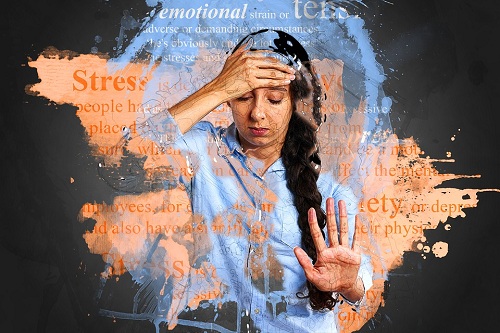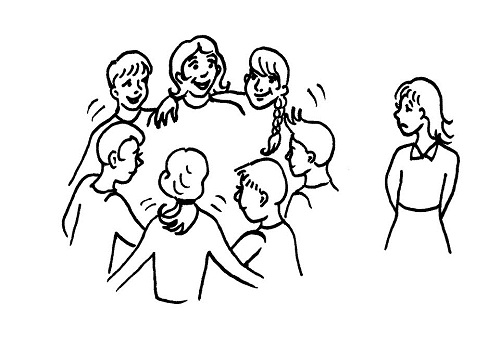Have you ever found yourself in a situation that you don’t do anything but all of a sudden you feel the pressure of anxiety? You feel like your heart is raising so fast, your mind starts to black out, and you experience uneasiness in your chest and stomach. And the more you fight it, the more badly it gets. So from there, you start thinking about stuff because you don’t want other people to notice you being anxious. You struggle in remaining cool. Your anxiety gets triggered due to the negative limiting beliefs. It reads social situations as something that either puts you off-guard or in an alert mode.

According to Christina Furnival, LPCC, “When we are anxious our bodies and brains can enter ‘fight or flight’ mode, leaving us to feel on edge with a small frustration-tolerance window.”
Fight-Flight-Freeze Response
When you see the anxiety in the situation you are in, especially in front of a lot of people, you begin to filter a possible danger. There’s a hyper-alert that’s going on in your brain because you think that at any moment, something terrible might happen. Things like embarrassing yourself, worries about other people’s criticisms, and different unavoidable scenarios that put you in a state where you can no longer function. All of these social anxiety signs are the result of the brain’s activated survival response called the fight-flight-freeze response. It pumps the adrenaline through your veins, it rushes blood away from your head, your throat tightens up, and it upsets your digestive system out to your outer limbs.

Technically, when fight-flight-freeze response gets activated, it puts your whole over-all function in survival mode. It makes you choose between hiding and running from the dangers of what your mind interprets. So when anxiety seems to be the problem you are trying to get rid of, it’s entirely not the real issue, or at least not the only thing that you need to worry about. The real underlying problem is the unsafe environment and social situations that your subconscious inputs in your head. And because it sees danger everywhere, you automatically respond with anxiety symptoms.
John R. Montopoli, LMFT, LPCC says “Be gentle with yourself. Remember the famous saying, “it’s progress, not perfection.” Keeping with these skills will help reduce brooding and post-event rumination.”
Anxiety In Social Situations
Since social anxiety is the result of the mind’s firing-up from danger, the effort in focusing alone on removing it won’t work at all. Therefore, the only action you can do is deal with what activates the fight-flight-freeze response. There’s a need to put the subconscious mind in focus of diversion. It needs to think differently and believe that there’s no danger in social situations. Because when the mind believes that you are safe in any social setting, there’s going to be no trace of anxiety symptoms.

The mind reacts through these limiting beliefs that activate the fight-flight-freeze response which mainly brings anxiety. So to be able to change that perception of harmful elements in your head, there must be neutralization of the limiting beliefs. By thinking that you are unique, you accept yourself, that you are more than good enough, and people can like you, you’ll genuinely attract the positive thoughts. And once you finally neutralize the compilation of your negative limiting beliefs, the subconscious mind sees you safe from the social environment.
Make sure to be around the right people. According to Marni Goldberg, LPC, “However, again, being around people who care about you is a valuable source of support.”